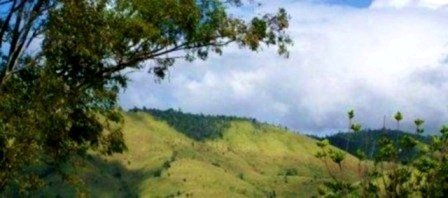
"The educational use of ICT has changed over the years as new inventions forge new pathways for learning opportunities."
(O'Neill, 2004 & Knight, 2006, as cited in Smith, Lynch & Knight, 2007, p.44).
One of these new pathways is the creation of the WebQuest.
Dodge (2001), states that WebQuests are an inquiry-orientated activity in which most or all of the information used by learners is drawn from the Web. These are designed to encourage higher order thinking skills using open ended questions to solve real and relevant tasks (WebQuest Direct, 2009). If anyone should know what a WebQuest is it should be Dodge as he developed the concepts at the San Diego State University in February of 1995 (Dodge, 2001).
Using the Web effectively in conjunction with solid learning strategies (March, 2003/2004), WebQuests are an excellent platform where students can learn individually and collaboratively to achieve intended outcomes. The Quests are constructed to guide students on a journey of learning through authentic, rich tasks which require deeper thinking and research skills to solve a real world problem. Students can progress through the Quest at their own pace using links and information provided to form conclusions to the tasks.
Previously I have constructed a Science based WebQuest using the topic 'The Life cycle of Bees'. Although I have not introduced this Quest to a classroom environment, the process of developing the Quest has been instrumental in the understanding of E-Learning and its capabilities to engage. To ensure a successful WebQuest was created the following essential components of a WebQuest (WebQuest Direct, 2009) were used:
- Introduction -draws the learners attention to the topic and inspiring action (hook)
- Task -a problem based focus question drawn from the introduction and sets out the goal.
- Resources - needed to complete the task, including links to web pages.
- Process - description of the process the learners are to apply in solving the problem
- Evaluation - the guidelines for how students will be assessed. Usually a rubric or criteria.
- Conclusion - closure to the quest, addresses the answering of the Focus Question. the conclusion should encourage further action and investigation beyond the WebQuest.
- Teachers Page - Contains learner profiles, curriculum and essential learnings. Any additional information noted important, such as time needed to do quest.
Knowing that today's students have spent their entire lives surrounded by and using technologies (Prensky, 2001) I have a growing passion to engage them through the mediums they best learn. Realising that the students will have more in depth knowledge about technologies and there applications than myself, it is important to integrate teaching pedagogy and relevant tasks with technology to ensure student success within their learning.
Bye for now,
Kellie
References
Dodge, B., (2001). Five Rules for Writing a Great WebQuest. Retrieved 17 August, 2009, from:
http://webquest.sdsu.edu/documents/focus.pdf
March, T., (2003/2004). Educational Leadership. Retrieved 17 August, 2009, from
http://tommarch.com/writings/wq_power.php
Prensky, M., (2001). Digital Natives, Digital Immigrants. Retrieved July 18, 2009, from:
http://www.marcprensky.com/writing/Prensky%20-%20Digital%20Natives,%20Digital%20Immigrants%20-%20Part1.pdf
Smith, R., Lynch, D., & Knight, B., (2007). Transitioning teachers for national and international change. Frenchs Forest, NSW, Australia: Pearson Education Australia.
WebQuest Direct, (2009). What is a WebQuest. Retrieved 17 August, 2009, from:
http://www.webquestdirect.com.au/whatis_awq.asp







Hi Kellie,
ReplyDeleteI have to admit my first experiences with a WebQuest were not really enjoyable. However, once i maneuvered myself around and gained a grasp on 'hyperlinking' i became, in your words, a WebQuest advocate.
There are so many benefits and positive outcomes that can be achieved through a WebQuest. In my experience, students are engaged in the task at hand and they are keen to explore the topic in greater detail. Why shouldn't we provide our students with learning experiences that cater specifically to them!
Chat soon,
Kerri.